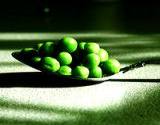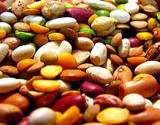|
Grandma's Molybdenum Essential Mineral GuideThis essential mineral, molybdenum, is required in extremely small amounts for nitrogen metabolism. It aids in the final stages of the conversion of purines to uric acid. This trace mineral promotes normal cell function, and is a component of the metabolic enzyme xanthine oxidase. Molybdenum is found in the liver, bones and kidneys. A low intake is associated with mouth and gum disorders and cancer. A molybdenum deficiency may cause impotence in older males. Those whose diets are high in refined and processed foods are at risk for deficiency.
Natural Food Sources Containing
|
Return from Molybdenum Essential Mineral Guide to Grandma's Vitamin List Guide
Return to Grandma's Herbal Remedies Guide Home








